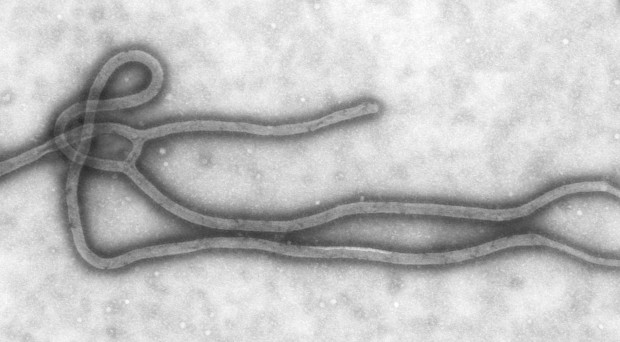
What is your experience of Ebola?
I was working as a medical student in 1996 when a nurse, Marilyn Lahana, was treated for Ebola virus by the unit I was connected to. Marilyn had contracted the disease from a doctor who had flown into Johannesburg from Gabon for treatment. You can hear more about this in a video I’ve put together for my health channel.
What is Ebola and how long is the incubation period?
The World Health Organization describes Ebola as one of the world’s most virulent disease. Ebola virus disease has an extremely high mortality rate, which can be as high as 90%. Severely ill patients require intensive supportive care. No licensed specific treatment or vaccine is available for use in people or animals.
Ebola is a hemorrhagic fever and its original host is believed to be the fruit bat from the Pteropodidae family. The virus is transmitted to people from wild animals and spreads in the human population through human-to-human transmission. Ebola is contracted in humans through direct contact (through broken skin or mucous membranes) with the blood, secretions, organs or other bodily fluids of an infected person, and indirect contact with environments contaminated with these fluids.
The incubation period for Ebola (i.e. the time between contracting the disease and actually developing symptoms) ranges from 2 to 21 days. This means that patients can catch the disease and not know it until they develop symptoms 3 weeks later. Further details on Ebola can be found in the World Health Organization’s fact sheet and this Centers for Disease Control and Prevention page.
Due to the highly virulent nature of the disease, it can spread easily across borders, even outside of West Africa. The probability of it spreading outside Africa increases each day as more and more patients catch the disease and the disease spreads from rural areas to densely populated cities that have international airports. Ebola has now reached Lagos, one of Nigeria’s most populous cities with over 21 million inhabitants.
What are the most common symptoms of Ebola?
At first, patients present flu-like symptoms including fever, sore throat, headaches, muscle pains, intense weakness and rash. Later symptoms include vomiting, diarrhea, impaired kidney function and organ failure, and internal and external bleeding sometimes from the eyes and ears.
How do you diagnose a potential Ebola case?
If a patient comes to you and presents the flu-like symptoms described above, even if they are mild, how do you know whether they have Ebola? These are a few simple questions you can ask them to help you detect a potential Ebola case:
• Take a travel history and determine whether or not the patient has been in an area affected by the Ebola epidemic recently. Importantly, you need to keep yourself up-to-date with the spread of the disease so that you can include specific questions about any new areas that the Ebola virus has spread to.
• If they have been to any Ebola affected regions or countries (such as Guinea, Sierra Leone, Liberia and Nigeria), be on high alert.
• Ask specific questions about flu like symptoms including muscle pain, weakness, a sore throat, fever and headaches. The patient may also present with vomiting, diarrhea or signs of bleeding.
Remember that when a person with Ebola virus disease has become symptomatic, they are also infectious and you should take every precaution to avoid any physical contact with any body fluids.
What do you do if you’re a healthcare worker and you find yourself seeing a patient that you believe might have Ebola?
 Firstly, stop whatever you are doing. Avoid any direct physical contact with the patient. Ebola is extremely contagious and patients who might be at risk of having the disease should be treated as such until proven otherwise.
Firstly, stop whatever you are doing. Avoid any direct physical contact with the patient. Ebola is extremely contagious and patients who might be at risk of having the disease should be treated as such until proven otherwise.
Contact the most senior doctor available in the hospital immediately. Explain that there is a patient that may have the Ebola virus.
Every hospital will have a protocol in place for such an eventuality. It is important that stringent measures to protect medical staff and other patients are taken at the point that Ebola is suspected and not only at the point when a diagnosis has been confirmed.
It is not enough just to wear gloves.
Just to give you an idea of how infectious this disease is, a German hospital which agreed to take care of a patient from West Africa with Ebola said that this patient will be kept behind three air locks, the room will be kept at low pressure so that no air can escape, doctors and nurses treating the patient will have complete protective body suits with their own oxygen supply. These body suits will be replaced and burned every three hours. Wearing a pair of gloves is not good enough.
It is important that hospitals ensure that frontline medical staff know what to look out for, even if they are never faced with an actual case of Ebola, its better to be safe than sorry.
Has any research / controlled studies been done / published on the infectivity of surfaces eg bedding, clothes etc and how long the virus survives in this type of environment – contaminated with fluids from patients who have / had the ebola virus